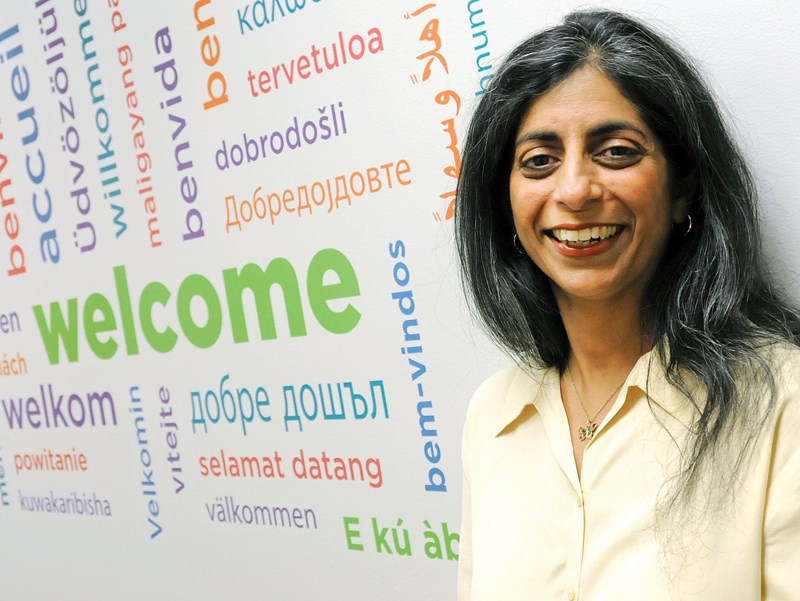Speak the truth: the first step in acting against racism is to own that it exists.
January, 2017. Riding the 240 from North Vancouver to Vancouver, the bus passed Trump Tower. Post U.S. election, post Trump’s hate-fuelled campaign, there it was: his name unveiled.
Suddenly for the first time in my life – after 40 years of fighting racism – I felt afraid.
I didn’t sleep for days after the election. I was overwhelmed. I disconnected from TV, Facebook and my connections who were expressing their own rage, rightly so, over the increased incidences of racism Trump’s campaign seemed to have sparked. If I, as a diversity specialist, was afraid, what were other people feeling?
Racism is not new – the belief that a particular race is superior to another, that a person’s character is predetermined by their biological characteristics – has existed for a very long time and has created systems of oppression for many people all over the world. Although we often don’t like to admit it, racism is present on the North Shore.
As the manager of diversity programs at North Shore Multicultural Society, I regularly hear personal stories of how people experience racism in our community. Swastikas spray-painted on election signs or racist language on walls at community centres make the news, but every day I hear individual stories that point to the complexity of the issue.
A local Iranian woman in a head scarf being yelled at by another Iranian woman not wearing a head scarf that “it’s because of you people we have these problems today!” Youth of all backgrounds who share experiences of racism in our school neonology program. Racism is not an issue of people of colour versus white people. I’ve observed and heard racism and discriminatory behaviours amongst people of all diverse backgrounds.
So what do we do? As the world’s cities grow increasingly diverse, we need to acknowledge how we feel. Each of us can feel afraid, vulnerable, angry or even just sad when something that we’re familiar with changes or when our personal privilege or power feels diminished. As a first step, we all have to admit that racism and discrimination exists. And we all have to take responsibility for stopping it.
As a personal action, to get beyond Trump, I started informal talking circles at my North Shore workplace. This was something I could create – a place of support where folks from all diverse backgrounds could get together to share their experiences with racism and be heard with respect. A recurring question emerged: “What do we do to respond?”
Everything I heard pushed me to bring together a group to organize a public forum on racism. Our focus would be to discuss what racism looks like on the North Shore today and what we can do individually and together to stop it.
During our planning, some were concerned that drawing attention to racism so bluntly might intimidate people, both those who have experienced racism and those who haven’t, and prevent them from coming. In the end, we concluded that there should be no downside in admitting that every part of the world struggles with racism, even the North Shore. Each one of us is capable of racist and discriminatory behaviours; once we acknowledge this, we can work together as a community to come up with strategies and actions to address it.
I hope you will join us at the public forum in September.
The Acting Against Racism: Strategies for Moving Forward public forum will take place on Thursday, Sept. 14, 7-9 p.m. at Kay Meek Centre in West Vancouver. More info: nsiip.ca.
Meharoona Ghani is the manager of community connections and diversity at the North Shore Multicultural Society.
What are your thoughts? Send us a letter via email by clicking here or post a comment below.



